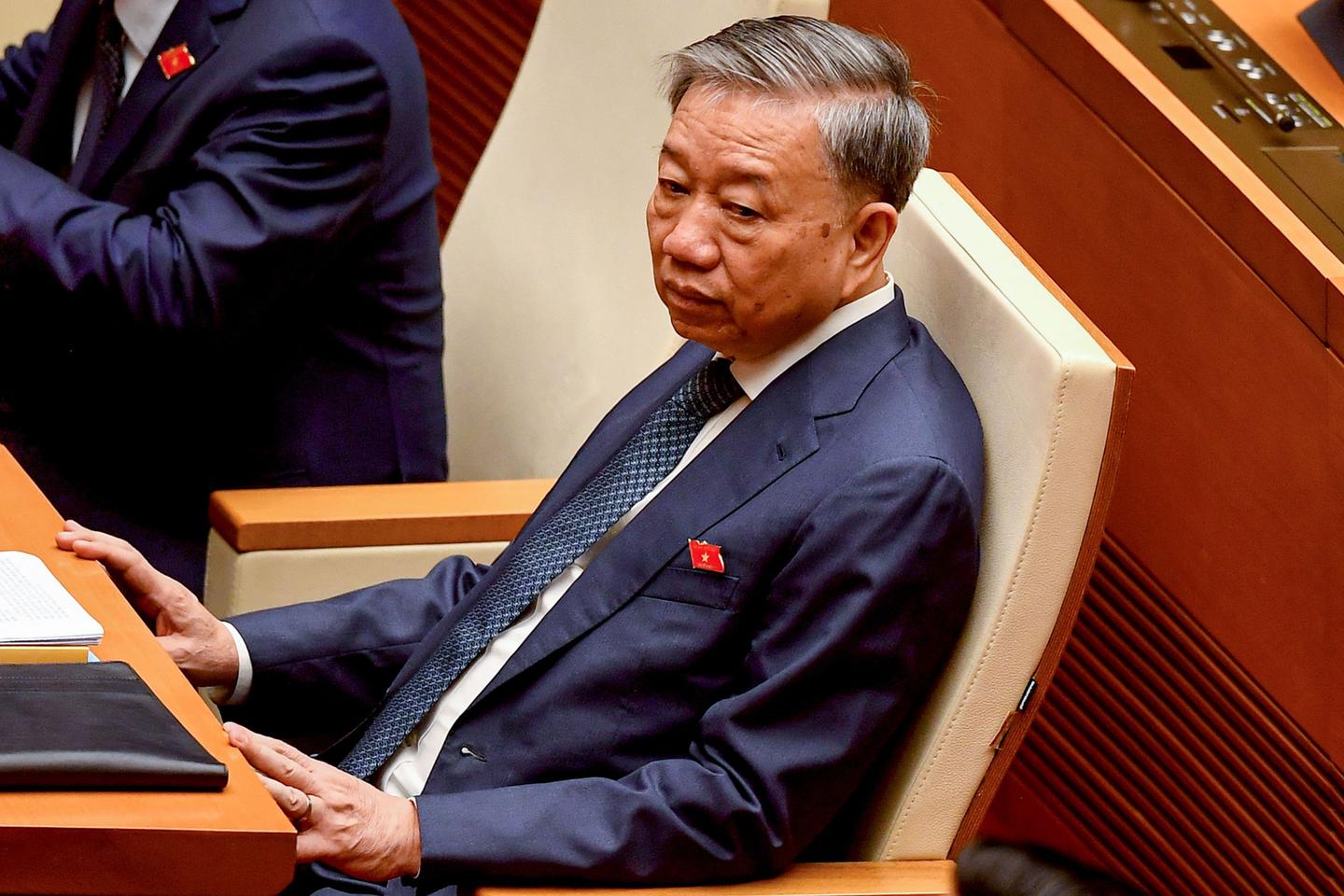
With Tu Lam, Vietnam gets a chief from the security service

After several months of fluctuations at the top of power, the arrival of General Tu Lam, the current Minister of Public Security (Police) to the presidency of Vietnam, looks like at least a major step, if not a consequence, in the fierce power struggles that have monopolized this one-party system in Last few years. The ambitious and powerful Mr Lam appears, at this stage, to emerge a clear winner: he was elected by the National Assembly on Wednesday, May 22, after being endorsed by the party. According to state television, 472 out of 473 deputies approved this choice by secret ballot.
Vietnam has been without a president since March, after the sudden resignation of Vu Van Thuong. However, he actually replaced his predecessor who also “resigned” about a year later in this largely symbolic position, which actually corresponds to the second place in the party-state hierarchy: supreme power in Vietnam is held by the general. Secretary of the Communist Party of Vietnam, Nguyen Phu Trong, has been in office since 2011.
At the end of April, it was the turn of the president of the National Assembly, Vuong Dinh Hue, the fourth “pillar” of the party-state, to surrender. He was followed on May 16 by Truong Thi My, the only female member of the Politburo, the leading grouping of the Communist Party. It now includes only twelve members instead of eighteen, after successive resignations at its head since the 2021 conference, which is an unprecedented loss in its history. next to For Lam as president of the country, the Central Committee of the Communist Party of Vietnam recommended replacing other vacant political and government positions. The latter are then “elected” by the National Assembly – a formality in this one-party system.
“Coordinating the competition for power”
All of these leaders are officially resigning with a mysterious name “Violations and shortcomings” In managing the country's affairs, which is what some may do “Caused a negative impact on public opinion” And “It affected the reputation of the party, the state and themselves” In common parlance, their exit is equivalent to an honorable and negotiated exit from corruption cases that affect them directly or indirectly. However, there is no shortage of them: hundreds of party executives, as well as wealthy and famous businessmen, have come under intense condemnation since the Communist Party's front man, Nguyen Phu Trong, in 2016 launched a wide-ranging anti-corruption campaign. campaign and “Moral” A party called the “Burning Furnace,” based on the model that has been carried in China by his Chinese counterpart, Xi Jinping, since 2013.
You have 54.2% of this article left to read. The rest is reserved for subscribers.

“Unapologetic pop culture trailblazer. Freelance troublemaker. Food guru. Alcohol fanatic. Gamer. Explorer. Thinker.”
